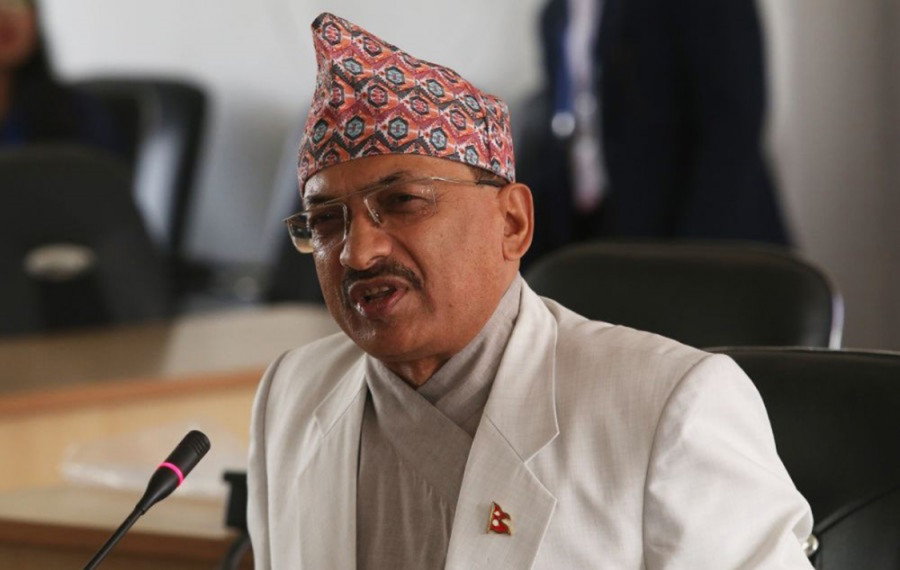Politics
Public procurement decisions are taken through the Cabinet to avoid scrutiny, chief of anti-graft body says
In an exclusive interview, Nabin Ghimire said his office is undecided on interrogating former prime ministers over Cabinet decision on Lalita Niwas scandal.
Prithvi Man Shrestha
Despite a series of controversial Cabinet decisions that have all the hallmarks of corruption, the Commission for Investigation of Abuse of Authority has admitted that its hands are tied because of legal provisions and a Supreme Court verdict that prevents investigations into the Cabinet.
Several Cabinet decisions in the Lalita Niwas scandal and another decision to award the Budhi Gandaki Hydropower Project to Chinese company Gezhouba Group Corporation without competitive bidding have been hugely controversial, provoking public outcry.
However, Section 4 of the CIAA Act prevents the anti-graft body from investigating the Cabinet’s ‘policy decisions.’
“A Supreme Court verdict during the late Girija Prasad Koirala administration also appears to say the CIAA cannot investigate Cabinet decisions,” said Nabin Ghimire, chief commissioner of the CIAA, in an exclusive interview with the Post and its sister publication, Kantipur, on Thursday.
[Read the full interview with CIAA Chief Commissioner Nabin Ghimire]
Public procurement decisions, which are legally the responsibility of the bureaucracy, are currently being taken by the Cabinet, leading to confusion over what constitutes a ‘policy decision’. Ghimire thus stressed the need for a clear definition of a policy decision from the government.
“We have made it clear that the decision regarding public procurement cannot be categorised as a policy decision,” he said.
This lack of clarity has led to a tendency among ministers and bureaucrats to take controversial proposals to the Cabinet. For instance, in the Lalita Niwas scandal, the Madhav-Kumar Nepal-led Cabinet, on April 11, 2010, decided to expand the area of the prime minister’s residence by allocating a portion of land for tenants. No real tenants existed, but the government land was sold off through a Cabinet decision. Dambar Shrestha, then minister for land reform, had taken the proposal to the Cabinet.
Later, the Baburam Bhattarai Cabinet, on October 4, 2012, decided to amend the land registered in the name of the Samarjung Company, owned by the government, to the name of the Pashupati Tikinchha Guthi, in accordance with a proposal from the Ministry of Land Reform and Management.
Ghimire said that the anti-graft body has already interrogated former ministers, including Chhabi Raj Pant and Dambar Shrestha in connection with the Lalita Niwas case, but he didn’t specify whether former prime ministers would also be questioned.
When asked if the tendency to take decisions through the Cabinet would also transfer to provincial and local governments, Chief Commissioner Ghimire said that law does not prevent the CIAA from investigating the decisions of provincial cabinets and the local executive.
But as the Lalita Niwas case, among others, are related to Cabinet decisions, the CIAA is concerned about whether the Supreme Court limits its ability to probe the case. According to Ghimire, the Supreme Court had issued a verdict on a decision by the Cabinet of the late Girija Prasad Koirala, setting a precedent.
“We are studying that verdict,” said Ghimire.




 13.12°C Kathmandu
13.12°C Kathmandu














